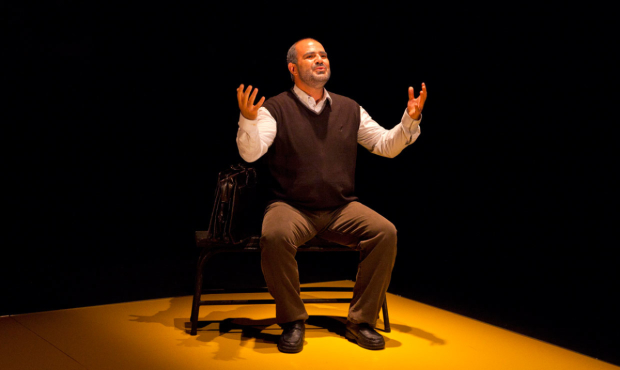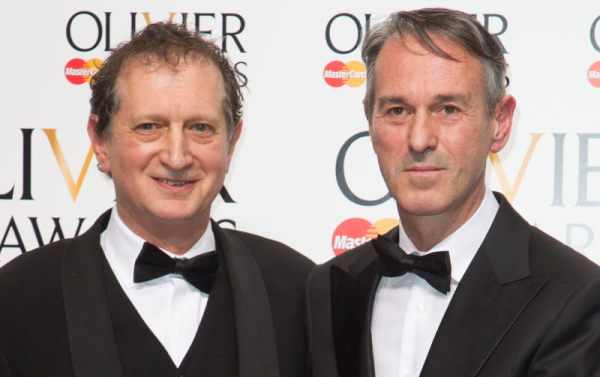Review: Taha (Young Vic)

© David Sandison
A life can be a history all of its own. Taha Muhammad Ali, the Palestinian poet and storyteller, lived through the most tumultuous of times and, in telling his life story, the actor-writer Amer Hlehel ends up unfolding the story of both a country and a conflict as well. The poet’s own fate seems tied up with that of Palestine, and vice versa. "I will," he says, "write the world."
As a first-person perspective on Palestinian history, Taha is an eloquent expression of the way individual lives and global events intersect. It reminds us not only that history affects people, but that people affect history as well. As a writer, Taha Muhammad Ali rises above his life’s lot to leave a mark on the world.
In Amir Nizar Zuabi’s endearing production, Hlehel steps onto a square of yellow stage, neatly dressed, briefcase in hand. As Taha, he’s an unassuming presence, until he opens his mouth and unleashes a buzzsaw burr. Here and there, he slips into Arabic to recite Taha's own poems.
Taha talks as if the world were set against him from the start. Born into extreme poverty, he was the first of five sons to survive infancy – the fourth to own his own name. At 17, after partition, bombed out of his home in the Palestinian village of Saffuriya, he took refuge at the Yarmouk camp in Lebanon, before returning, years later, to an unrecognisable nation.
Yet, his own story is one of small, personal achievements: building a business, bit by bit, from nothing; learning English and the violin; fattening sheep and waiting for his intended wife, Amira. And, of course, his writing. His crowning glory is a trip, late on, to London to read out his work.
Taha is, at one level, a tribute to a man who made something of himself in spite of his circumstances. More than that, though, it testifies to the human impulse to do exactly that – to build a life even when one’s world is falling apart. When he loses his lot, he simply starts over. Taha's story, quite often, feels far bigger than that of his nation.
Sometimes we look on at history from afar. Sometimes history bears down on us. In one lovely passage, Taha talks of the Second World War as a spectator sport among local villagers – half cheering on the Allies, half the Germans.
Occasionally, with news coming via opposing propaganda channels, both sides would celebrate the same victory. Some people would even pop into both parties. It’s a sequence that, subtly, turns political history on its head. Do we, perhaps, pick sides over Palestine in much the same way?
Taha runs at the Young Vic until 15 July, and at Summerhall in Edinburgh 4 to 13 August.











